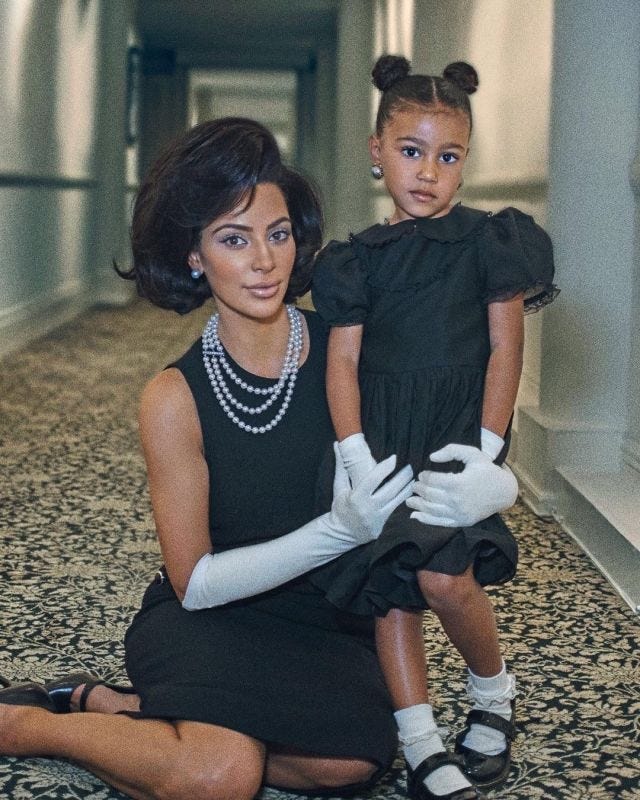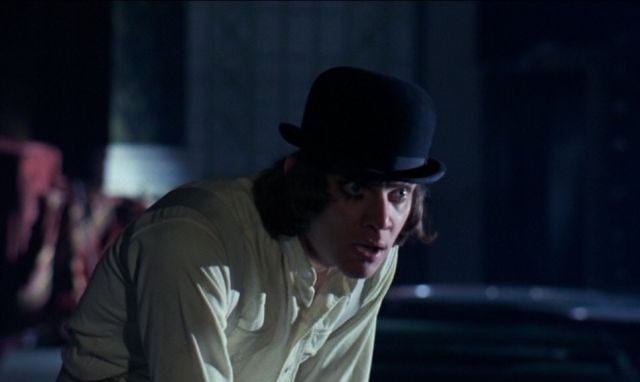The Bluestocking, vol 53: All the people, so many people
Happy Friday!
It's a life-writing special this week, to celebrate me filing an absolute whopper of a profile, which should be out next week. The longform profile is one of my favourite forms of journalism, because a) humans are infinitely weird and interesting; b) formally, it lends itself to experimentation, and c) it's quite rare to see it done well. The best ones are like a miniature novel: they get you inside someone's head and someone's work, in all its rich detail. The reason they are so rare is . . . well, we'll get into that later.
Helen
How mistakes can save lives
Grasping for medical knowledge from half-remembered episodes of Casualty, Bromiley asked if the doctors had attempted a tracheotomy – a cut to the throat to allow air in. They explained that the safer option had been to let her wake up naturally. He made his way to the intensive-care unit. When he got there, the first person to approach him was the consultant anaesthetist, who, without saying anything, gave him a hug. Bromiley found himself trying to console him. “I said, ‘I know these things happen.’ ”
This is how you do it. Here, Ian Leslie tells the story of an airline pilot whose wife died from oxygen deprivation because surgeons wasted time trying to intubate her when they should have skipped straight to a tracheotomy. He mixes this human story with something deeper and conceptual about how humans make mistakes, and how systems can be designed to reduce them. This one has everything: big ideas, interesting people, beautiful writing.
Tom Stoppard, withdrawing with style from the chaos
Today’s game is an annual fixture: Mr. Harold Pinter’s XI versus the Guardiannewspaper’s. The field, rented for the occasion, is impressively large, with a well-equipped pavilion, inside which at 2:30 P.M., the advertised starting time, both teams are avidly watching another match—England versus the West Indies—on television. Eight spectators, including two children and me, have turned up. The Guardian XI looks formidably healthy, featuring several muscular typesetters and the paper’s industrial correspondent. The Pinter squad seems altogether less businesslike. To begin with, only nine of the players are present, the principal batsman having discovered on his arrival that he had left his contact lenses at home. Since he lives in an outlying northern suburb, the game may easily be over by the time he returns. Moreover, Skipper Pinter, inscrutable as always, has decided at the last moment to absent himself, thereby leaving his lads leaderless.
Kenneth Tynan, the theatre critic, wrote a series of New Yorker profiles in the 1970s, and this one of Tom Stoppard might be the best. (Although I also love his piece about Johnny Carson, Fifteen Years of the Salto Mortale - what a headline).
Of course - recurrent grumble alert - these days only New Yorker writers get to hang around with their subjects for this long. Even GQ or Vanity Fair get a day or two, tops, and the rest of us usually have to be content with an hour in a sterile meeting room or hotel bar. Which leads me to a brief digression . . .

Kim Kardashian for Interview magazine.
Access Denied
Young Employee’s concern — what can we possibly do about Instagram, basically — was an expression of a worry that’s creeping up behind almost everyone in the business of distributing media for a living. Loss of power resulting in a loss of access resulting in further loss of power. It’s a disruptive new take on the media death spiral! And it’s one of the reasons that, lately, you might have noticed your media behaving a little strangely.
This, from 2015, accurately predicts both Donald Trump's bypassing of the media (on the basis that if he tweets, they will write it up - why submit to a searching interview?) and the decline of access for entertainment interviews. If you're Kim Kardashian, you have more Instagram followers (and maybe even paid website club members) than most print magazines have readers. So why give them your time, when it has strings attached?
Herrman (yes it is him, mon amour) points out that this is happening all over journalism. The editor of Kotaku, a games site, talks about publishers restricting access to new titles as punishment for reporting news they had heard outside the publishers' desired schedule. (Why are videogame reviews so bad? Because you try filing a review of a game that takes 40 hours to finish on the day it's released) It's happening this week as Apple decides which journalists it will graciously favour with an invite to the iPhone 8 launch, and the guaranteed traffic that represents. It happens in the arts, where power-brokers lean on editors to squash critics they find disobliging. Bad films get embargoed to the day of release, in the hope people will buy tickets before they find out it's a stinker.
Maybe all that leaves you cold. So what if Nicki Minaj doesn't give you access so you can get a cover story and she can flog her jewellery line? But there are bigger principles at stake. Herrman ends by talking about protesters refusing co-operation with a media they see as tainted and biased, and that whole idea - that people are now media-literature, that there's something meta about most media interactions with 'normal humans' - is key to understanding modern journalism. Even compared with a decade ago, most people I interview are a lot more conscious of the sausage-factory; celebrity interviews always risk becoming about the experience of celebrity itself, not about the real human person at the centre of it.
Rebecca Solnit: If I were a man
As a girl, I would have liked to have my intelligence and intellectual labours regarded as an unmitigated good and a source of pride, rather than something I had to handle delicately, lest I upset or offend. Success can contain implicit failure for straight women, who are supposed to succeed as women by making men feel godlike in their might. As Virginia Woolf reflected: “Women have served all these centuries as looking glasses possessing the magic and delicious power of reflecting the figure of man at twice its natural size.”
Always here for clever women flat out saying: yeah, I'm clever. What of it?

Hilary Mantel photographed by Leonie Hampton for the New Statesman, 2012
The unquiet mind of Hilary Mantel
Mantel’s mind is different. Left to her own devices, she can get caught up: “Yesterday morning, I was enjoying a hot shower and I started thinking what it would be like if I were in prison, and I couldn’t have this shower? And then I thought, ‘Well, I wonder, if I were in prison, would people bully me, or would I bully them?’ And then I stared thinking, ‘Well actually, it’s unlikely that you’d have to go to prison now, although earlier in your life you probably could very well have murdered someone . . .’”
Sorry, what?
I remember my former colleague Sophie Elmhirst tentatively approaching me with this piece and asking me to read it. "It's quite... experimental," she said, modestly. For my money, it's the best thing written about Mantel and her work.
The Confessions of R Kelly
There's a common way that journalists often choose to approach encounters like this. Ask all the easy stuff first. Get on the subject's good side, get their confidence. Leave the tricky stuff until late in the last interview, when everything else is safely asked and answered, and then grab what you can.
That's not how I'm doing this.
This has a strange mash-up style, alternating between written-through reporting and Q&As. That works because the fundamental premise of the piece is, to paraphrase Jeremy Paxman, why is this lying liar lying to me?
Tom Hiddleston on heartbreak and great bolognese
He heats up some Bolognese for me and we make our plan for the day, which I correctly predict will involve another walk through another astonishingly beautiful park. Yesterday, it was Regent’s Park. Everyone knows about Hyde Park, but do they know about Regent’s Park? No, and I must see it. In the park, I pulled out my old Olympus digital mini tape recorder, and Tom Hiddleston looked at it and whistled in admiration: “Hello, Olympus! This is a great Dictaphone!” He’d used one to test himself on accents when he was at the Royal Academy of Dramatic Art.
God spare me from ever having to interview another actor, but this is how you do it if you have to. It manages to incorporate the fact that if you hug Hiddleston goodbye in the street you will be pictured on Mail Online as his "new squeeze" without making that sound smug and self-aggrandising.
Ghosting
Sarah came in with a couple of FedEx boxes. A few weeks earlier, the billionaire (and Jimmy Choo financier) Matthew Mellon, for whom Julian was a hero, had landed his helicopter in the field outside the house and come in to have lunch. He said it was a pity a CEO such as Julian only really had one suit. Mellon said he would send him some clothes in the post. They’d forgotten about it until the FedEx boxes appeared. ‘Oh my God,’ Sarah said, ‘they’re actually in here.’
There were two suits by Oswald Boateng, a white shirt from Turnbull & Asser and a couple of ties, both from the gift shop at the Metropolitan Museum of Art. The suits had bright linings, one pomegranate-coloured, the other aqua. I told Julian that Boateng was the famous black British suit-maker of Savile Row. ‘That’s great,’ he said. ‘It fits the blacksploitation theme I’m hoping for with the film of my life. I want Morgan Freeman to play me.’
I'm afraid I bailed before the end of the latest 22,000 word Assange profile in the New Yorker, on the basis that there are only so many hours in a human life, and I did not want to spend any more of them with a sexist oaf who has locked himself in a cupboard. But I don't regret reading Andrew O'Hagan's account of trying and failing to ghostwrite Assange's memoirs.

Kubrick
He viewed the telephone the way Mao viewed warfare, as the instrument of a protracted offensive where control of the ground was critical and timing crucial, while time itself was meaningless, except as something to be kept on your side. An hour was nothing, mere overture, or opening move, or gambit, a small taste of his virtuosity. The writer Gustav Hasford claimed that he and Stanley were once on the phone for seven hours, and I went over three with him many times. I’ve been hearing about all the people who say they talked to Stanley on the last day of his life, and however many of them there were, I believe them all.
A profile of an artist's work is one of my favourite genres, and this gets to the heart of how Stanley Kubrick created an aura of genius around himself through eccentricity.
One final chaser: If you do find yourself writing about the experience of celebrity in a celebrity profile, there is no better way to do it than this piece about George Clooney's attitude towards being a movie star, as well as being an actor.
See you next time!

